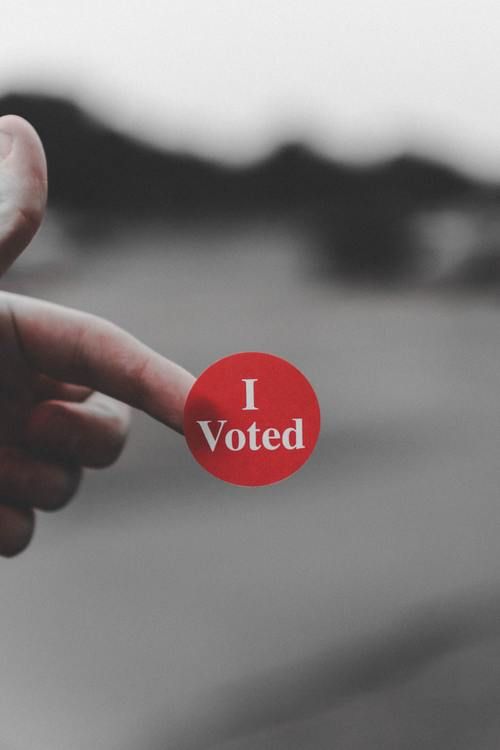Whose Politics? Which Morality?

A fool takes no pleasure in understanding, but only in expressing his opinion (Prov. 18:2)
See to it that no one takes you captive by philosophy and empty deceit, according to human tradition, according to the elemental spirits of the world, and not according to Christ (Col. 2:8).
When it comes to the beliefs of our fellow human beings and even those who “claim to live in Christ” (1 Jn. 2:6), we can be greatly perplexed at the diversity of opinion—how is it that people, many of whom are educated and of goodwill, can believe so vastly different things about the nature of reality?
This incredulousness was certainly evident during the recent presidential election. Many of even the same families and faiths came to adopt two radically different positions concerning visions of the moral and political good during the election, very roughly categorized as liberal and conservative.
For liberals, they saw an experienced and honorable candidate in Joe Biden who was ready to pave the way for women, transsexuals and undocumented/illegal immigrants (to name a few) to break the glass ceiling of a patriarchal rooftop and continue Obama’s struggle for a more just society. Trump was the incarnation of Satan: unethical, unqualified, and, most importantly, a bigoted normalizer of the triune unpardonable sin of our time in the threefold manner of racism, sexism, and homophobia. “How could anyone, much less a follower of Jesus, vote for a man who talks about minorities with such disrespect? How can we vote for a man who knows so little and lies so much?” they asked out loud. Support for Biden was support for justice over injustice, plain and simple.
For many conservatives, they perceived Biden, beset by cognitive decline, to be the epitome of status quo who would force Christians to accede to the unjust mandates of social justice activists in the arenas of abortion, homosexuality, religion and racism (BLM): they wondered, “How can Christians support someone who so blatantly defies God in her advocacy for same-sex marriage and abortion? How can we back someone who so dangerously threatens our religious liberty? And those who get a steady diet of Fox news (but not CNN) wondered, “How can we vote for a person whose family (read, Hunter) appears to be so corrupt and full of deceit?” Many conservatives saw hope in Trump for a revitalized economic future in post-COVID America. Others voted for him as a buffer to what they perceived to be a greater evil, namely the felt threat of liberalism to the ideals of morality, freedom, and true religion. Supporting Trump was akin to U.S. support of Stalin during World War II against the Axis powers—not ideal, but necessary to defeat the bigger threat.
See to it that no one takes you captive by philosophy and empty deceit, according to human tradition, according to the elemental spirits of the world, and not according to Christ (Col. 2:8).
When it comes to the beliefs of our fellow human beings and even those who “claim to live in Christ” (1 Jn. 2:6), we can be greatly perplexed at the diversity of opinion—how is it that people, many of whom are educated and of goodwill, can believe so vastly different things about the nature of reality?
This incredulousness was certainly evident during the recent presidential election. Many of even the same families and faiths came to adopt two radically different positions concerning visions of the moral and political good during the election, very roughly categorized as liberal and conservative.
For liberals, they saw an experienced and honorable candidate in Joe Biden who was ready to pave the way for women, transsexuals and undocumented/illegal immigrants (to name a few) to break the glass ceiling of a patriarchal rooftop and continue Obama’s struggle for a more just society. Trump was the incarnation of Satan: unethical, unqualified, and, most importantly, a bigoted normalizer of the triune unpardonable sin of our time in the threefold manner of racism, sexism, and homophobia. “How could anyone, much less a follower of Jesus, vote for a man who talks about minorities with such disrespect? How can we vote for a man who knows so little and lies so much?” they asked out loud. Support for Biden was support for justice over injustice, plain and simple.
For many conservatives, they perceived Biden, beset by cognitive decline, to be the epitome of status quo who would force Christians to accede to the unjust mandates of social justice activists in the arenas of abortion, homosexuality, religion and racism (BLM): they wondered, “How can Christians support someone who so blatantly defies God in her advocacy for same-sex marriage and abortion? How can we back someone who so dangerously threatens our religious liberty? And those who get a steady diet of Fox news (but not CNN) wondered, “How can we vote for a person whose family (read, Hunter) appears to be so corrupt and full of deceit?” Many conservatives saw hope in Trump for a revitalized economic future in post-COVID America. Others voted for him as a buffer to what they perceived to be a greater evil, namely the felt threat of liberalism to the ideals of morality, freedom, and true religion. Supporting Trump was akin to U.S. support of Stalin during World War II against the Axis powers—not ideal, but necessary to defeat the bigger threat.
This is truly an American age of polarization, of radically different conceptions of the good. One person’s idea of marriage equality is what another would call the degradation of public morality. One man’s religious freedom is another’s religious bigotry. One woman’s reproductive rights are another’s genocide of children. And just being born white in America makes that person, at the very least, a tacit racist by default!
The problem of fundamental disagreement is a profound one, and I can only offer some cursory thoughts as to finding a way through. Christians must carefully evaluate their own philosophy and competing philosophies, always measuring them against “the mind of Christ” (1 Cor. 2:16). Christians must earnestly seek wisdom to discern the various visions of ethics, politics, and justice (James 1:5, 3:17-8). And, perhaps most importantly, Christians must be willing to respectfully listen to others and truly attempt to understand where others come from, even while humbly disagreeing (Lk. 9:54-5)—if the Golden Rule applies to the political realm as well, then I think it would demand nothing less.
So, join with me in the next few weeks as I examine several election-related issues that, if handled without the “Radical-Middle” (both/and) and adequate knowledge and compassion, threaten to compromise our prophetic (i.e., theocentric, nonpartisan) witness to the unbelieving world.
The problem of fundamental disagreement is a profound one, and I can only offer some cursory thoughts as to finding a way through. Christians must carefully evaluate their own philosophy and competing philosophies, always measuring them against “the mind of Christ” (1 Cor. 2:16). Christians must earnestly seek wisdom to discern the various visions of ethics, politics, and justice (James 1:5, 3:17-8). And, perhaps most importantly, Christians must be willing to respectfully listen to others and truly attempt to understand where others come from, even while humbly disagreeing (Lk. 9:54-5)—if the Golden Rule applies to the political realm as well, then I think it would demand nothing less.
So, join with me in the next few weeks as I examine several election-related issues that, if handled without the “Radical-Middle” (both/and) and adequate knowledge and compassion, threaten to compromise our prophetic (i.e., theocentric, nonpartisan) witness to the unbelieving world.
Posted in AMI Blog
Recent
What I Won’t Say to the Lord in My Prayer for Healing of Pastor Eddie
January 25th, 2023
How Would You Respond to Those Who Say, “You Cannot Trust the Gospel Accounts?"
September 2nd, 2022
Should the Church Celebrate, Lament or Be Silent Over the Recent Abortion Verdict?
July 1st, 2022
“Contradictions” in the Bible: How Do I Make Sense of Them?
June 22nd, 2022
Is There Hope for Ukrainian Refugees?
April 5th, 2022
